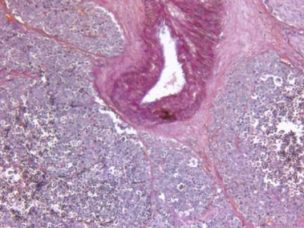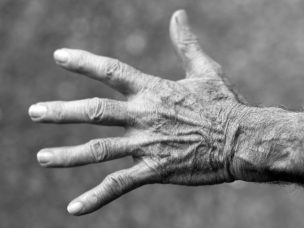Cancer
Dr. Shaina Rozell: Cancer and the COVID-19 Pandemic
In this MD Newsline exclusive interview with oncologist Dr. Shaina Rozell, we discuss cancer management challenges and disparities during the COVID-19 pandemic. MD Newsline: What are the biggest challenges that oncologists are tasked with in the wake of COVID-19? Dr. Shaina Rozell: “I think with the pandemic, it has resulted in a lot of delays in...
Why Research on Cancer Health Disparities Is Critical to Progress against the Disease
Although there has been substantial progress in cancer treatment, screening, diagnosis, and prevention over the past several decades, addressing cancer health disparities—such as higher cancer death rates, less frequent use of proven screening tests, and higher rates of advanced cancer diagnoses—in certain populations is an area in which progress has not kept pace. These disparities...
Making History at St. Jude: Dr. Rudolph Jackson
When St. Jude opened in 1962, Danny Thomas vowed the hospital would treat patients regardless of race, religion or ability to pay. Dr. Rudolph Jackson was one of the first black doctors at St. Jude. While he was finishing his training in Philadelphia, Dr. Rudolph Jackson fielded an offer to move 1,000 miles and begin...
Even Low-Intensity Exercise Can Help During Cancer Treatments
If you have cancer and you’re trying to exercise to boost your health, new research suggests you don’t have to knock yourself out during your workout. Light exercise is just as beneficial as more demanding workouts for cancer patients, the researchers found. Previous research has shown that physical activity can improve cancer patients’ physical and...
FUS Ablation Feasible for Intermediate-Risk Prostate Cancer
Targeted focal therapy with magnetic resonance imaging (MRI)-guided focused ultrasound ablation is feasible for the treatment of intermediate-risk prostate cancer, according to a study published online Feb. 2 in Radiology. Sangeet Ghai, M.D., from the University of Toronto, and colleagues conducted a prospective phase II trial involving men with unifocal clinically significant prostate cancer visible at...
Why Immunotherapy Therapy Works Better for Black Men With Prostate Cancer
Higher levels of a certain type of immune cell may explain why immunotherapy for prostate cancer is more effective in Black men than in white men, researchers say. The finding could lead to immunotherapy-based precision treatment for localized aggressive and advanced prostate cancer in all races. For the study, the researchers analyzed 1,300 prostate tumor...
Blacks Underrepresented in Cancer Drug Trials: Study
FRIDAY, July 10, 2020 — U.S. government-funded clinical trials for new cancer treatments have more Black participants than those run by drug companies, but Blacks are still underrepresented in cancer studies, researchers say. The SWOG Cancer Research Network team analyzed data from 358 clinical trials — 85 drug industry trials and 273 SWOG trials. They...
More Than Half of Cancer Patients Willing to Enroll in Clinical Trials
TUESDAY, Oct. 13, 2020 — More than half of patients offered participation in cancer clinical trials are willing to participate, according to a study published online Oct. 6 in the Journal of the National Cancer Institute to coincide with the ASCO Quality Care Symposium, held virtually from Oct. 9 to 10. Joseph M. Unger, Ph.D., from...
Improved Age Disparity in Glioblastoma Clinical Trials
Glioblastoma (GBM) is the most common malignant brain tumor originating in the brain. This study, published in CNS Oncology, analyzes disparities in GBM clinical trials. Due to the prevalence and severity of GBM, gaining an accurate understanding of how the disease impacts the general population is essential. Radiation plus concurrent adjuvant temozolomide remains the standard...
More Medical News














